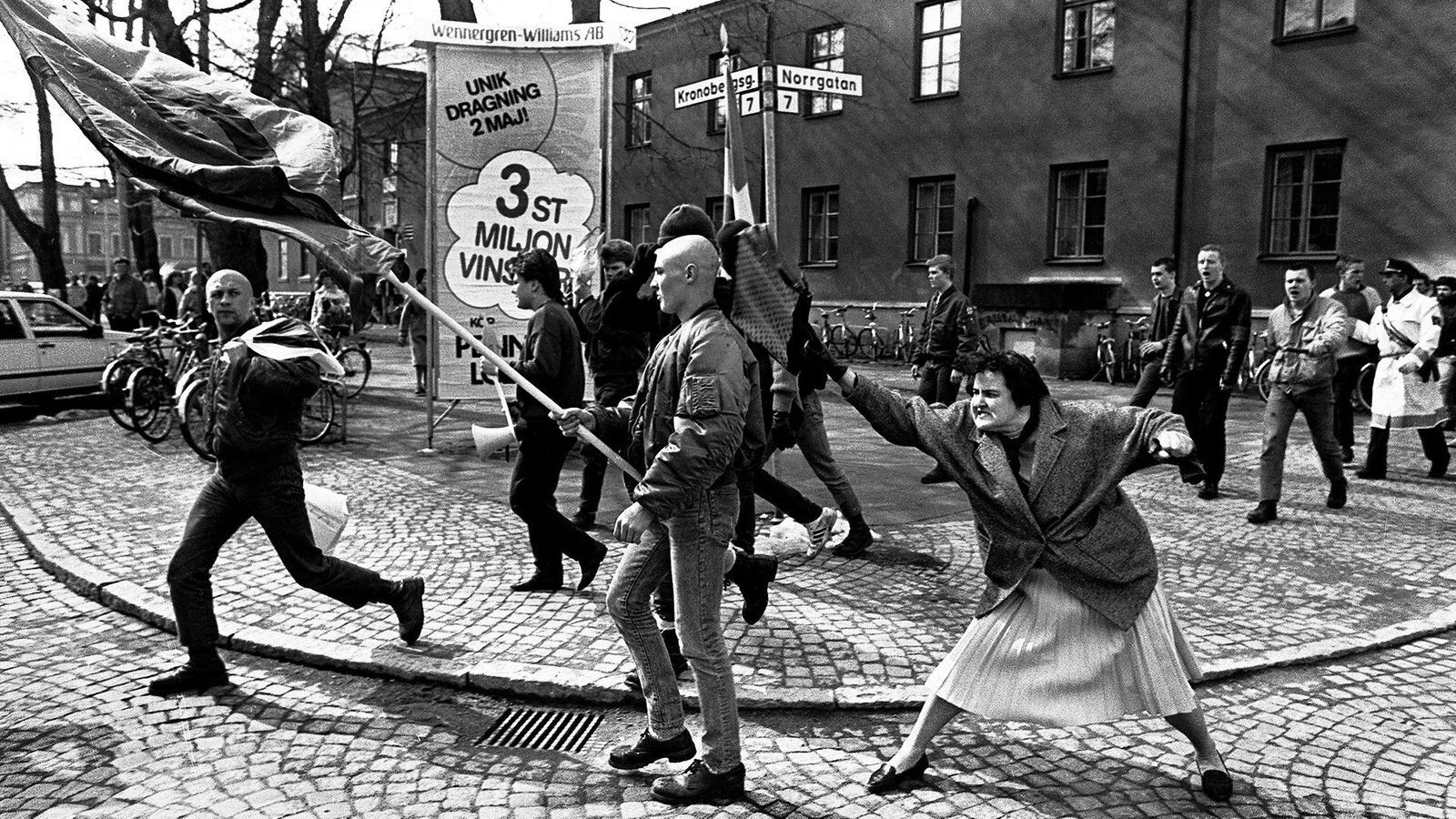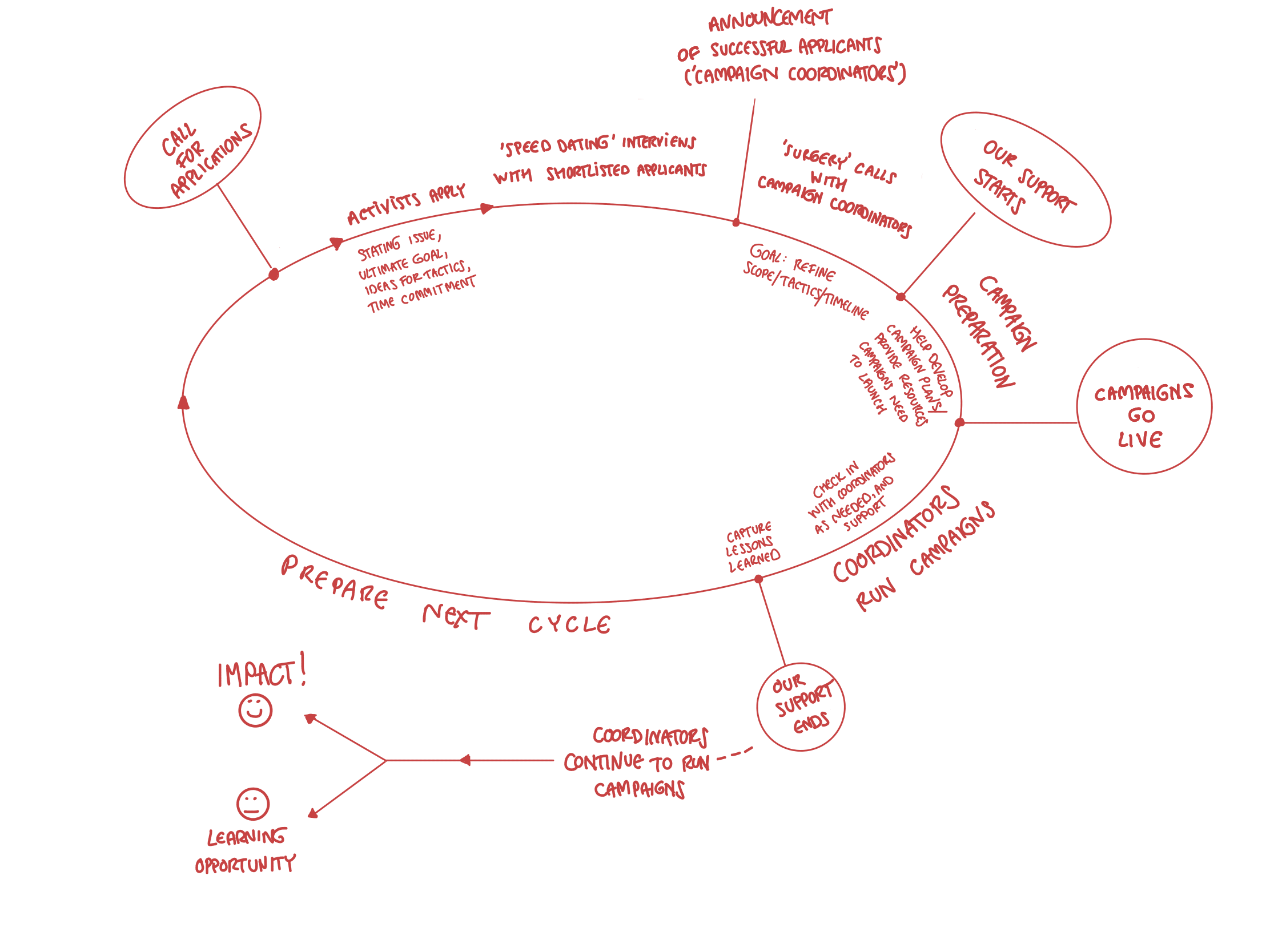We need to understand that we can affect the things that are going on around us. And to understand that, we need to try it. We need to attempt to influence; we need to attempt to do stuff. Even if [it’s] wrong.
–Antonis Bougias, Golden Dawn Watch
From not doing anything, or writing comments on Facebook, to actually doing something… there’s infinite space. Once you cross [it], you’re going to feel alive. And from that point, anything is possible.
–Radomir Lazovic, Founder, Don't Let Belgrade Drown
The case for individual, targeted activism

Activists typically like to push for change by building coalitions and generating consensus.
But sometimes it’s the lone activist starting small that finds the most effective path. The right person with the right idea at the right time, pushing the right weak spot, can have an impact.
Antonis Bougias and his team covered the trial of Greece’s neo-nazi party, making public vital information that the Establishment would have preferred to control. Daniel Dale documented Trump’s lies over four years, providing raw data to help hold a President to account. Chris Smalls staged a walkout to protest the lack of COVID protection at Amazon, and sparked a national movement against the company.
These people took action because they found something that made them mad, and no-one else was working on it. They started small, but kept their attention focused on a single issue and played the long game. They crossed the seemingly infinite space between problem-pointing and problem-solving.
OK, this kind of targeted, individual activism isn’t likely to bring power instantly to its knees. And there’s always the risk that it leads to nothing.
But on the other hand, even if it’s only moderately successful it can establish a platform on which to build a bigger campaign later on. It can provide you with a focal point to mobilise people around, giving you a better shot at long-term impact. And it gives you a chance to stretch your activist muscles as well as an opportunity to learn.
So how can we promote this model of grassroots activism?
An incubator for grassroots campaigns
This is the challenge that Ivana Nenadovic, Juliana Zita and I are trying to tackle with Campaign Accelerator, a new project that we’ve launched this week with the progressive movement DiEM25. Its goal is simple: to support grassroots activists to develop their own actions on issues in their communities that they feel passionate about.
The project runs in cycles. The first (pilot) cycle was last November-December, and we received 47 applications. Among the campaigns we helped was an initiative to block the construction of Yet Another Mall in Porto, and a push to stop arms companies running schools in a region in the UK. And we learned a lot.
The second Campaign Accelerator cycle has now started, and we’ve already received 51 applications. The deadline to apply is the end of Friday, February 5.
How it works
The Campaign Accelerator page has all the details, so I won’t reproduce them. But here’s the essence of this project from our side (it’s rough :).

- Assemble a team with specific skills that are valuable for campaigns. From graphics and video to PR and legal advice.
- Ask the crowd which issues in their communities bother them most. Encourage starting small, keeping it local, and choosing things they could make progress on.
- Pick the three most viable applications. Assist the rest in a one-off fashion.
- Work with the coordinators of the three ‘winners’ over four weeks. Support them to prepare a small campaign, and help them go live by giving them access to the resources of the team.
- The coordinators run their campaigns. We take stock of how it went, and integrate what we learn into the next Campaign Accelerator cycle.
Currently, the project is open for verified DiEM25 members. If this is you, read more about the project and submit your issue here. (That deadline again: Friday, February 5!)
The future
We don’t have the perfect recipe for this project, because we’ve never done anything like it before. And we’re trying to do a lot with a little. But we are starting, and will iterate as we go.
In the future we could imagine building out the team to include more skilled volunteers. Holding training workshops. Supporting campaigns for longer than four weeks. Or scaling up the project to be able to work with more than three campaigns per cycle.
But let’s keep it small for now. If you have feedback on the project or ideas to improve it in the meantime, tell us.
And here’s to crossing that infinite space :).


